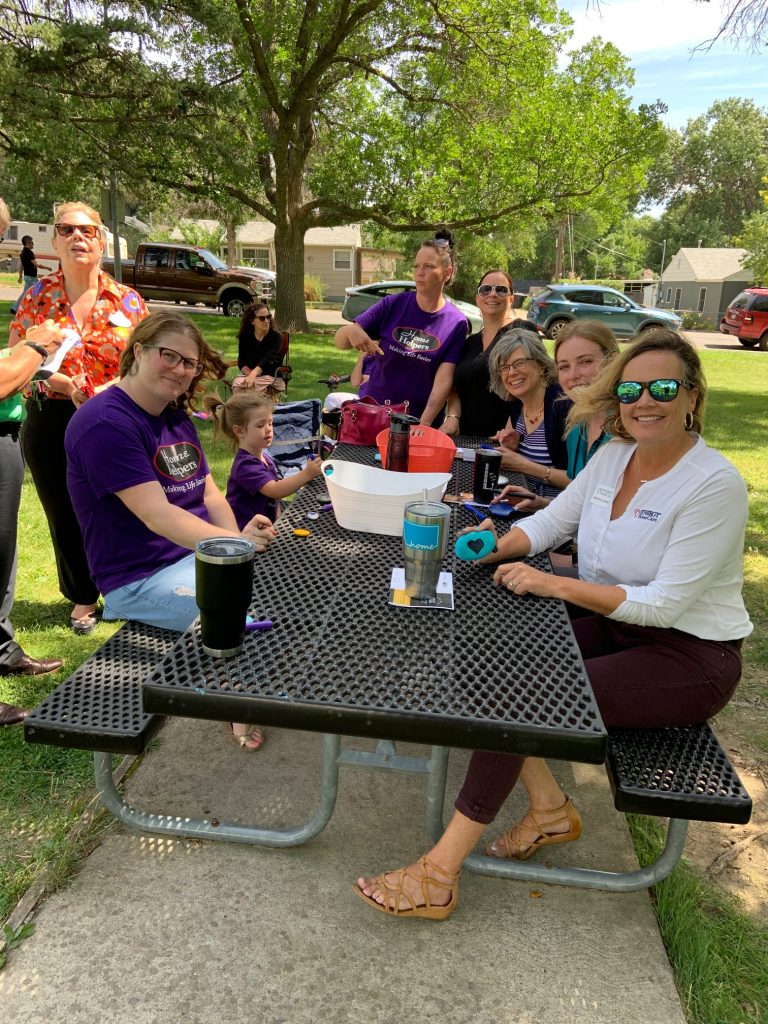Healthy Connections
Social connections build resilience
Social isolation is defined by a lack of social interactions or connections with family, friends, neighbors, and/or society at large. When someone has a perceived lack of social connections, he/she/they may experience loneliness. Connections provide social, emotional, physical, and financial support. Individuals experiencing social isolation are at an increased risk of poor health outcomes such as increased stress, mental illness, substance abuse, disability, and physical inactivity. Welcoming public spaces and civic engagement opportunities such as volunteering, mentoring, and community groups that build social ties or capital improve individual health outcomes and the quality of life within a community.

Increasing connections through access and community
“Be a Good Neighbor” Sidewalk Shoveling Initiative
Accessible sidewalks are essential to maintaining healthy connections, particularly for low-income families, differently-abled individuals, and older adults, who are especially at risk of social isolation. Sidewalks connect many local neighborhoods, but keeping them accessible year-round is a challenge for a county which often experiences winters marked by prolonged cold and snow. Those most impacted by snow-laden sidewalks may also be least able to safely shovel their own sidewalks. While the City of Billings runs its Snow Buddies Program each year, demand for help outweighs volunteers. For the winter of 2020/2021, this initiative involved a two-pronged approach: piloting a hyper-local shoveling program matching volunteers from Rocky Mountain College to those in need of assistance around the neighborhood; and the “Be a Good Neighbor” campaign, designed to supplement the city’s Snow Buddies messaging by reminding able-bodied people of the impact shoveling their walk makes for others.
For winter 2021/2022, our Coalition worked on a Snow Shovelling Business Challenge and ways to engage more neighborhoods around the community.
Connecting Neighbors Summer Series
Neighborhoods are the fabric of a community – whether homes and the people who occupy them are a courtyard, a driveway, or a mile apart. Neighbors provide social, emotional, and in some cases, essential support. Unfortunately, due to busy schedules, fear of political disagreements, or social anxiety, fewer and fewer people know their neighbors, and it’s hurting our health.
According to the 2019-2020 Yellowstone County Community Health Needs Assessment (CHNA), nearly 1 in 4 area residents lacks the social and emotional support they need. 1 in 4 also feel socially isolated at least some of the time and 1 in 10 feel isolated most of the time. Yet 9 in 10 residents feel that they can help make their community a better place to live.
Last summer, the Healthy By Design Coalition of Yellowstone County launched a “Be A Good Neighbor” summer challenge to residents of all ages, abilities, and neighborhoods. While the 2021 challenge is officially over, we encourage you to continue finding ways to get to know your neighbors to build social supports. The more you connect with neighbors in simple ways, the more mutual trust you will build. Check out the Connecting Neighbors tile below for ideas to get started.

 in Montana
in Montana